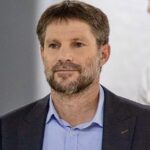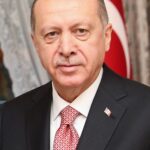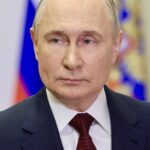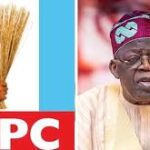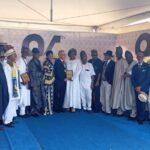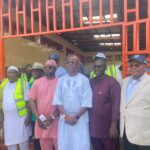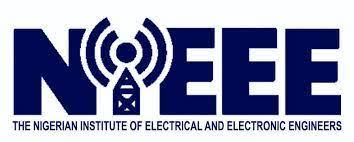By Stellamaris Ashinze
The Managing Director, Equinix Nigeria (MainOne), Mr Wole Abu, says that Nigeria has emerged Africa’s digital leader, boasting 132 million active internet subscribers and 43 per cent broadband penetration.
Abu made this known at the inauguration of the executive committee of the Nigerian Institute of Electrical Electronic Engineers (NIEEE), Victoria Island Chapter in Lagos.
The programme which had the theme, “Evolution of Digital Economy in Nigeria: The Role of Electrical and Electronics Engineers”, also included the unveiling of the Techy Voice of Experts.
Abu said that the country’s ICT sector was driving growth with a recent $320 million acquisition and $140 million expansion of digital infrastructure.
The Equinix managing director noted in his presentation, titled: “ICT Infrastructure Behind the Digital Economy,” that the investment included a 7,000km submarine cable network and a 1,200km fibre network across Nigeria.
“Eight submarine cables landed in Lagos, bringing over 300,000 terabits of data and supporting global tech giants like Amazon and Google.
“Equinix data centres handled 95% of internet traffic, providing secure environments for digital payments.
“Four thousand cloud providers on Equinix platform offer reliable cloud services for e-commerce,’’ he said.
According to him, over 65 points of presence across West Africa enables localised traffic exchange and improved internet experience.
Abu said that $460 million had been invested so far with more coming to support digital entrepreneurship ecosystem.
He said that to drive growth, collaborations with innovation hubs, business schools, and engineering testers were underway to launch digital businesses and transform the economy.
“Nigeria aims at being the leading carrier-neutral digital provider in Africa, leveraging digital innovation to drive economic growth,” the Equinix boss said.
Also in his presentation via webinar, Mr Wilson Alli, Deputy President, Chartered Institute of Power Engineers of Nigeria (CIPEN), said that Nigeria’s digital economy hinged on electricity supply.
Alli said in his presentation titled, “Power Systems and Digital Economy,” that Nigeria’s digital economy was growing rapidly.
He said that its growth was being driven by increasing internet access and an entrepreneurial spirit.
The deputy president noted that, however, the sector’s growth was threatened by inadequate electricity supply.
According to him, this challenge impacts economic growth, increases costs for digital businesses and slows the growth of the Nigerian digital economy.
Alli said: “A key challenge for the country’s digital economy growth is insufficient transmission capacity hindering the flow of generated energy to meet demand.
“Other key challenges are high energy costs affecting digital businesses and slowing growth as well as increased vulnerability to cyber attacks due to outdated systems.”
Alli stressed that by addressing these challenges and seizing opportunities, Nigeria could ensure a reliable, efficient, and sustainable electricity supply to support its digital economy.
In his keynote address, Mr Augustine Nwaulune, Chief Executive Officer (CEO), Augustine K. Nwaulune and Co Consultants Ltd., said that the ICT sector had contributed 19.78 per cent to the nation’s Gross Domestic Product (GDP) in Q2 2024.
Nwaulune noted in his address titled: “Evolution of Digital Economy in Nigeria: The Role of Electrical and Electronics Engineers,” that the GDP statistic was according to the National Bureau of Statistics up from 17.89 per cent in Q1 2024.
He that the unsung digital alchemist behind the blinking lights of a data centre, the station and telecom tower among others, was the craftsmanship of of Electrical and Electronics Engineers.
According to him, engineers have led fibre deployment, base station installation and microwave link design.
“Through smart meters and automated substation, we bridge power and data.
“Nigeria’s rise as Africa’s fintech capital is powered by robust network, engineered by integrated sensors, processors and communications noses,” he said.
The National Chairman, NIEEE, Mr Felix Olu, represented by the Vice-Chairman, Mr Olalekan Olabode, encouraged the new executives to be professional.
He challenged them to encourage companies and government agencies within their purview on professionalism.
Also, the pioneer Chairman, NIEEE, Victoria Island Chapter, Mr Taiwo Okharedia, highlighted the achievements during his tenure.
Okharedia said that everything achieved from membership growth to national engagement and fellowship to industrial partnerships had been built on collaboration, commitment and vision.
The new Chairman, NIEEE, Victoria Island Chapter, Mr Austyne Duru, expressed excitement over the inauguration while pledging his team’s commitment to move the institute to greater heights.
Duru highlighted his team’s strategic action as including engaging in public discourse of topical issues, quarterly transactional newsletter and more media engagements, among others.
NAN reports that the highlight of the event was the inauguration of the new executives with Austyne Duru as Chairman; Chineze Okafor as Deputy Chairman, and Adeyinka Osunbade as Vice-Chairman (ICT).
Other executive members include Vice-Chairman (Power), Madukife Obiamaka; General Secretary, Adetunji Adeniyi; Financial Secretary/Treasurer, Idris Gambo; Publicity Secretary, Jane Essien, and immediate past President, Taiwo Okharedia. (NAN)(www.nannews.ng)
Edited by Christiana Fadare

